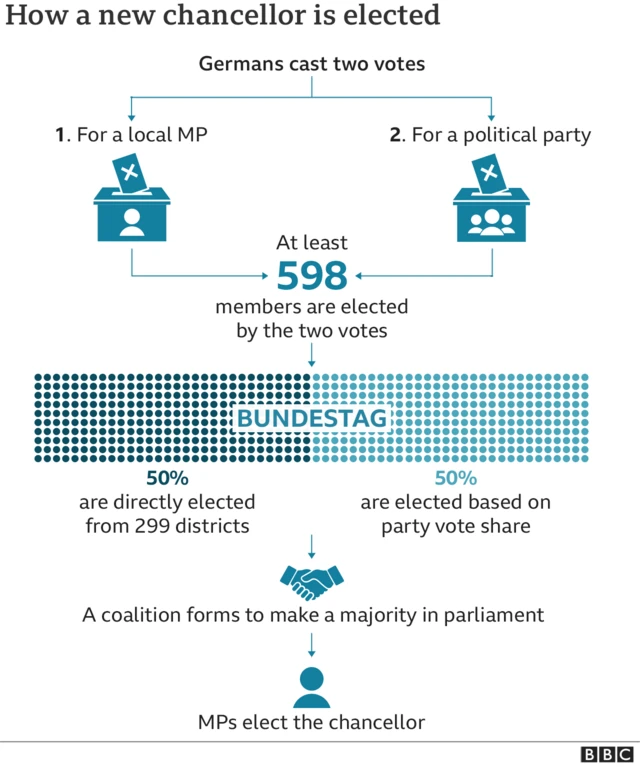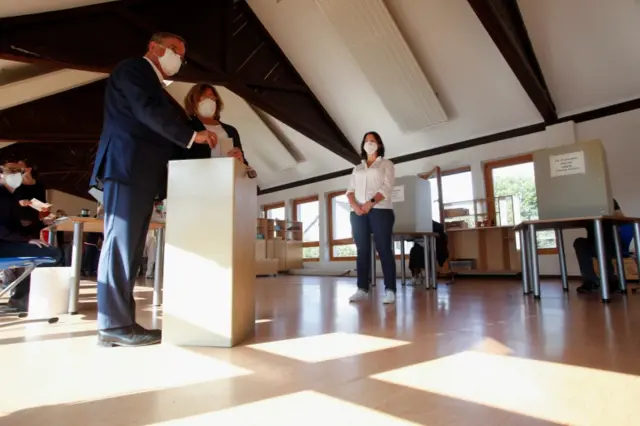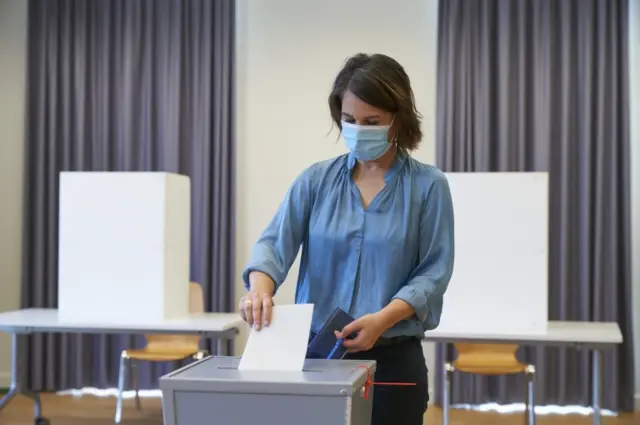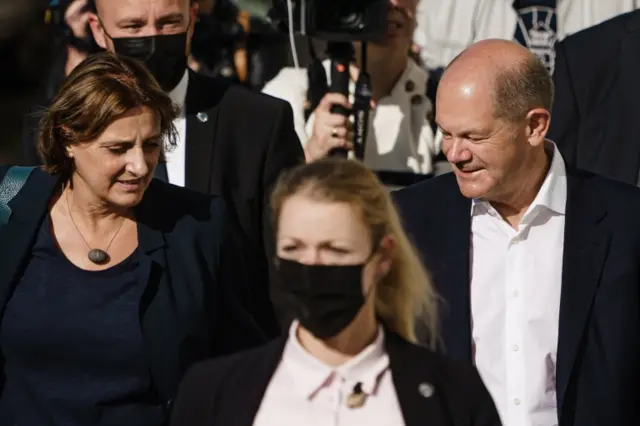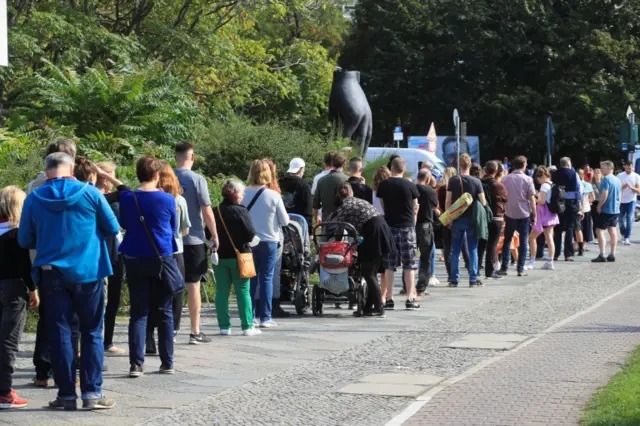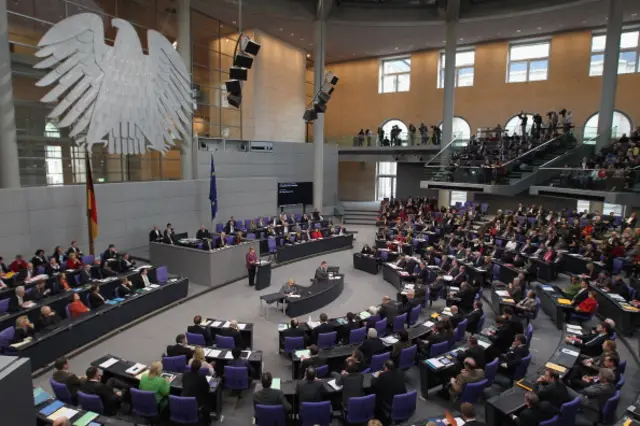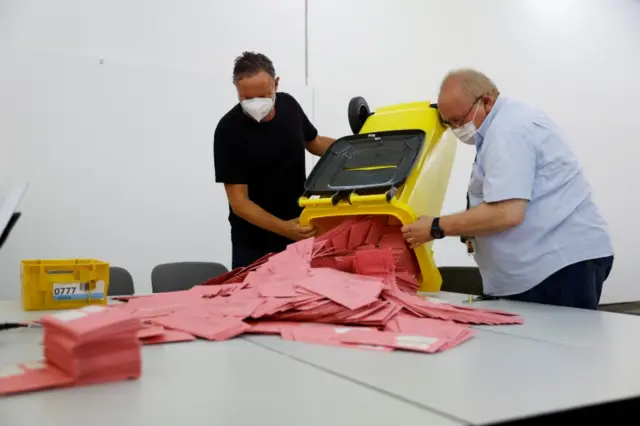How is the chancellor selected?published at 16:20 BST 26 September 2021
The chancellor is not directly elected by German voters. Instead, they elect MPs to the lower house of parliament, the Bundestag.
Usually the party with the most seats in the Bundestag picks the chancellor. But the any candidate for chancellor has to form a coalition to get over that 50% absolute majority line.
So Angela Merkel’s conservatives won the most seats in the last Bundestag election in 2017 and formed a two-party government with the centre-left.
Coalition-building always takes time and at this election it could be particularly tricky as there’s little chance of two parties having enough seats - three will probably be required. They will have to agree common ground and haggle over ministerial appointments.
When a coalition deal has been struck, members of the newly elected parliament hold a vote to approve the new chancellor.
